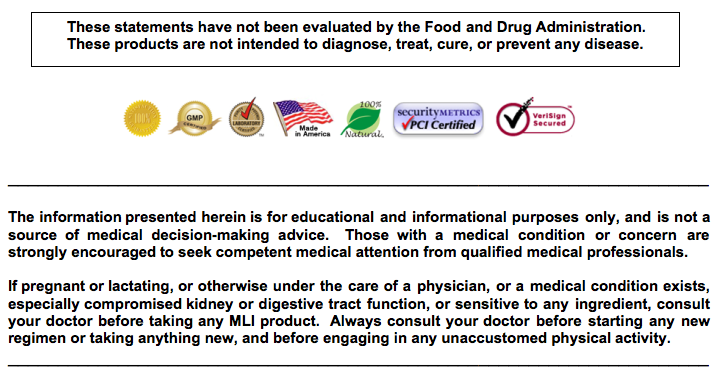for Heart Health Support & Cardiovascular Function
Prevention – Before reaching peak bone mass (30-35 years of age):
- Calcium 600-650 mg per day (from all sources, supplements and food)
- Magnesium 1,000 mg per day
- Support: Proper nutrition and regular exercise (i.e., the MediterrAsian Diet and at least 30 min. of walking a day plus some Weight Training exercises)
Prevention – After reaching peak bone mass (35+ years of age):
- Calcium 300-400 mg per day (from all sources, supplements and food)
- Magnesium 1,000 mg per day
- Support: Proper nutrition and regular exercise (i.e., the MediterrAsian Diet and at least 30 min. of walking a day plus some Weight Training exercises)
Maintenance – With verified dystrophic calcification and older adults (40+ years of age):
- Calcium 200-300 mg per day (from all sources, supplements and food)
- Magnesium 1,500-2,000 mg per day
- Support: Proper nutrition and regular exercise (i.e., the MediterrAsian Diet and at least 30 min. of walking a day plus some Weight Training exercises)
Reduction – With verified substantial dystrophic calcification formation and buildup:
- Calcium 200 mg per day (from all sources, supplements and food)
- Magnesium up to 3,000 mg per day (for 6-12 months)
- Support: Proper nutrition and regular exercise (i.e., the MediterrAsian Diet and at least 30 min. of walking a day plus some Weight Training exercises)
Note: The best source for calcium is generally considered to be that which is naturally present in food, rather than from supplements. Supplemental calcium is considered to be not as usable by the body as the calcium that is naturally present in food, and is currently thought may contribute to unbalanced calcium metabolism and dystrophic calcification when consumed in excess amounts and not properly balanced with an adequate magnesium intake. As a natural calcium channel blocker, magnesium is known to help support the proper utilization of calcium and balance calcium metabolism. The best source for magnesium is a combination of that which is naturally present in food (for smaller intakes of magnesium) and from supplements (for larger intakes of magnesium), especially the advanced supplemental forms that do not have a laxative effect when taken in larger daily doses.
(See “The Five Pillars of Health – The Basis of Heart Health,” ”Calcium,” ”Magnesium,” “Potentiated Magnesium,” “Unbalanced Calcium Metabolism,” and “The Role of Calcium” for more details)


